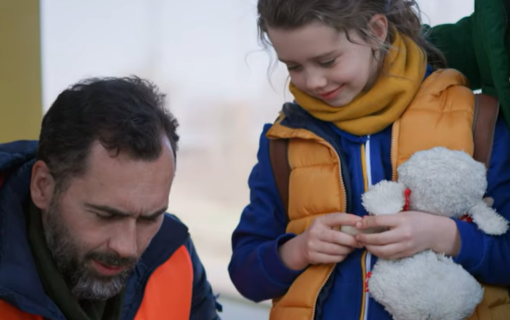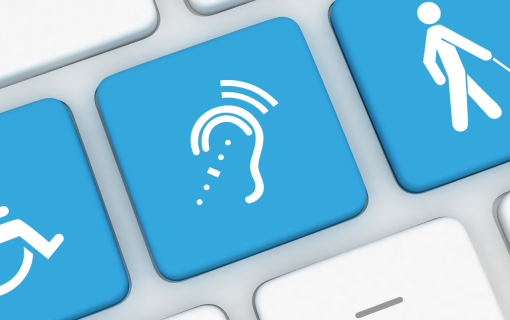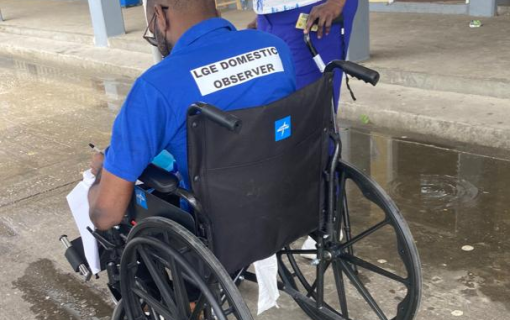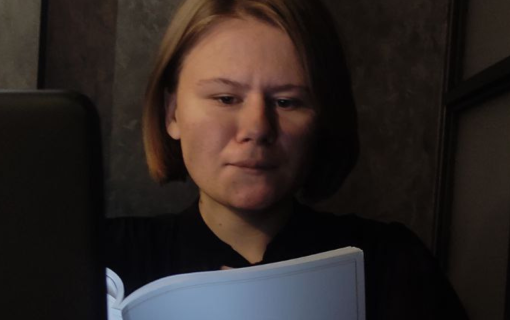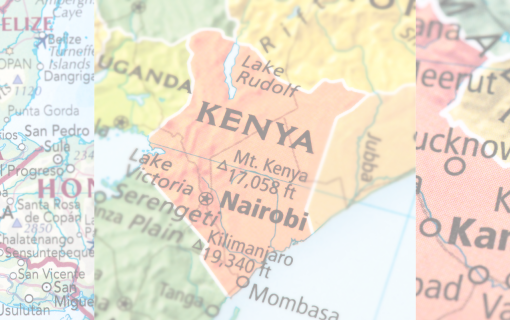IFES Q&A with Former Inclusion Intern, Program Development Innovation, Lindsay Lee
Lindsay Lee served as former Inclusion Intern for Program Development Innovation at the International Foundation for Electoral Systems (IFES), focusing on the rights of people with disabilities. She recently received her B.S. in mathematics from the University of Tennessee, Knoxville. She also majored in Spanish and minored in Portuguese. In the fall of 2014, she will attend the University of Oxford as a Rhodes Scholar, studying for a M.S. in applied statistics. She plans on utilizing her mathematics and language skills in the public health field as a member of a governmental or non-governmental agency. As an undergraduate, Lindsay founded Campus Disability Advocates, a student organization seeking to educate the university about disability issues. She also was an opinion columnist for the school newspaper The Daily Beacon and was a member of various administrative advisory councils.
How do you plan to use your post-graduate work to advance disability rights?
I hope to eventually use the mathematics I’ve studied to go into the field of public health. I want to build mathematical models and analyze data pertinent to healthcare policies that affect marginalized groups such as people with disabilities. The disability community is the group that requires the most healthcare, but often receives the least because of physical and socioeconomic accessibility issues. Hopefully by focusing my analyses on these issues, I can help resolve them so people with disabilities can have more equal and fair access to healthcare services.
The Convention on the Rights of Persons with Disabilities (CRPD) is considered a vital framework for creating legislation and policies around the world that embrace the rights of persons with disabilities. Why is the Convention unique among other human rights conventions?
The CRPD is the first UN treaty to focus exclusively on the human rights of people with disabilities. It rejects the idea that individuals with disabilities should be objects of charity and medical intervention, and instead upholds the belief that people with disabilities are an equal and valuable part of global human diversity. It asserts that disability is a social issue and meeting the challenges facing people with disabilities requires addressing larger societal issues related to inaccessibility. The CRPD puts in writing what disability advocates have been saying for decades: people with disabilities have as much worth as anyone else.
What improvements need to be made to empower people with disabilities and increase their participation in the political process?
Like the CRPD states, disability is a social issue, so efforts to empower persons with disabilities require a multifaceted approach. In general, the political process needs to be “accessible” to people with disabilities, but this means many different things to many different people. For people with physical disabilities, making the process accessible could mean making sure all buildings have barrier-free entrances and pathways. For people who are visually impaired, this could mean making sure all paperwork is available in large print or Braille. But beyond this level of accessibility, making the political process fully inclusive requires an effort to educate people with disabilities about their rights and how to vote or run for office, while also educating poll workers on how to accommodate people with disabilities. Increasing the participation of the disability community in the political process is an extremely multifaceted issue, but if we really want to make the process accessible, we cannot leave any facet out.
Did you feel that your internship at IFES helped you grow professionally?
My internship at IFES definitely helped me grow professionally. It was the first job I’ve had working in the international development field, which is where I plan to work in the future. I learned so much about the development process and about all the little steps that have to go into a truly great piece of nonprofit work. I also had the opportunity to meet many people who are working specifically on disability issues worldwide. As a person with a disability, it is easy to think that there are few people out there who understand your life experience and care about the same issues you care about. Disability is just not in the news that often, unless it’s some manufactured inspirational throw-away story we are meant to “ooo” and “ahh” at. But now I know there are countless people working to make the lives of people with disabilities better worldwide, and it gives me a lot of hope.





